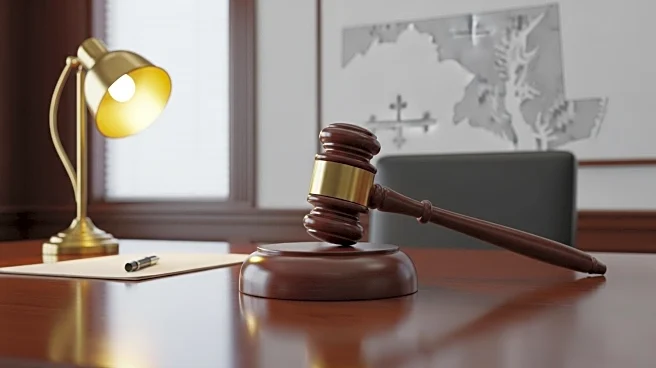What's Happening?
Democratic Maryland Governor Wes Moore announced on NBC's 'Meet the Press' that he will not be running for president in the 2028 election. Moore, who is up for re-election in 2026, confirmed his commitment to serving a full term if re-elected. During the interview, Moore emphasized his focus on Maryland's progress, highlighting achievements such as a significant drop in unemployment and violent crime rates. Despite speculation about his potential candidacy, Moore ruled out a presidential bid, stating his excitement about continuing his work for Maryland. Moore's decision comes amid discussions about other potential Democratic candidates for the 2028 election, including Illinois Governor J.B. Pritzker, California Governor Gavin Newsom, and former Secretary of Transportation Pete Buttigieg.
Why It's Important?
Governor Wes Moore's decision not to pursue a presidential run in 2028 shifts the focus to other potential Democratic candidates, impacting the party's strategy and dynamics for the upcoming election. Moore's emphasis on state-level achievements reflects a commitment to local governance, which may influence voter perceptions and priorities. His decision also highlights the importance of addressing state-specific issues, such as unemployment and crime rates, which are critical to Maryland's residents. As Moore continues to focus on his gubernatorial role, the Democratic party will need to consider other leaders who can represent their interests on a national stage. This development may affect the political landscape, as Moore was considered a rising star within the party.
What's Next?
With Moore's decision not to run for president, attention will likely turn to other Democratic figures who may enter the 2028 race. The party will need to strategize around potential candidates like Gavin Newsom and Pete Buttigieg, who have already garnered support in early polls. Moore's focus on re-election in Maryland suggests continued efforts to address state issues, potentially influencing his political future beyond 2026. As the Democratic party prepares for the next presidential election, the dynamics of candidate selection and campaign strategies will evolve, considering Moore's absence from the race.
Beyond the Headlines
Moore's decision underscores the broader trend of state leaders prioritizing local governance over national ambitions. This approach may resonate with voters who value tangible improvements in their communities. Additionally, Moore's achievements in reducing unemployment and crime rates highlight the importance of effective state leadership in addressing societal challenges. As the Democratic party navigates the 2028 election landscape, the emphasis on state-level successes may shape the criteria for selecting future presidential candidates.











